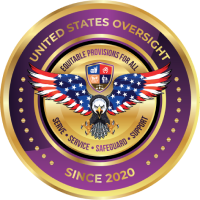Digital Services And Cyber Safety
Digital Services And Cyber Safety
KYC (Know Your Clients)
KYC is an electronic process used by businesses to verify the identity of their clients using digital tools. It is a more streamlined, efficient, and often more secure way of performing KYC processes compared to traditional in-person methods.
Improving Know Your Client (KYC) processes is essential for maintaining compliance with financial regulations, mitigating the risks of fraud, and building trust with customers. By embracing technology, simplifying workflows, using a risk-based approach, and enhancing security measures, businesses can streamline KYC processes while ensuring that privacy is protected.
Combating Extremism
Combating extremism is a critical area that intersect in today’s digital age, where online platforms have become a breeding ground for radicalization, hate speech, and violent extremism. While the internet offers numerous benefits, including the ability to connect and share ideas, it has also allowed extremist groups to recruit, propagate dangerous ideologies, and organize violent actions.
Combating digital extremism requires a balanced and strategic approach that combines technological solutions, education, community engagement, and international cooperation. By improving content moderation, providing counter-narratives, using AI for early detection, and fostering positive online communities, we can create a safer digital environment.
Transparency vs Privacy
Transparency and privacy are two crucial but often conflicting concepts in modern society, particularly in the digital age. Both are essential for building trust, ensuring security, and safeguarding individual rights.
By implementing clear data protection laws, enhancing user control over their data, promoting transparency in decision-making processes, and integrating privacy by design, we can build trust and accountability without compromising individuals' rights.
Human And Civil Rights
These rights encompass both traditional civil rights (such as freedom of speech, the right to privacy, and equal protection under the law) and digital-specific rights such as but not limited to access to information, digital freedom, and protection from online harms.
Improving human and civil rights requires strengthening legal protections, combating discrimination, expanding access to education, promoting social and economic equality, and safeguarding freedoms of expression and assembly.
Combating Misinformation And Disinformation
Digital platforms can be used to spread misinformation, conspiracy theories, and harmful content, often without accountability or consequences for the spreaders.
Combating misinformation and disinformation is an ongoing battle that requires concerted efforts from governments, tech companies, media organizations, and the public. By promoting media literacy, improving content moderation, empowering users, and leveraging technology to detect and correct false information, we can reduce the harm caused by misinformation.
Intellectual Property Rights
Intellectual Property Rights (IPR) are legal protections granted to the creators, inventors, and owners of intellectual creations or inventions. These rights enable the creators to control the use of their creations, ensuring that they can profit from their work and prevent others from using it without permission.
Improving Intellectual Property Rights involves balancing the protection of creators' and innovators' interests with the broader need for access to knowledge, culture, and innovation. Modernizing IP laws, enhancing enforcement, increasing awareness, and fostering international cooperation are all essential to creating a robust system that encourages creativity and drives progress in a digital, interconnected world.
Countering Terrorism
Countering Terrorism refers to the use of digital technologies, platforms, and online tools to prevent, detect, and respond to terrorism-related activities. Some of the ways these technologies are used by terrorist groups include Radicalization and Recruitment, Communication and Coordination, and Promotion of Violence.
The USO's approach to solving these issues involves cooperation between governments, intelligence agencies, tech companies, international organizations, and civil society, to ensure that digital tools are used while minimizing unintended negative consequences.
Fraud
Digital fraud refers to any type of fraudulent activity that occurs through digital platforms or technologies, typically involving the internet, mobile devices, or digital transactions.
Minimizing fraud requires a multi-faceted approach, including strong authentication, real-time fraud detection, user education, secure transactions, and collaboration between organizations. By leveraging technology such as AI, encryption, and blockchain, businesses can create more robust defenses against fraud while also ensuring that users' personal and financial data are protected
It encompasses a wide range of illegal or unethical practices aimed at exploiting digital systems, stealing personal or financial information, or deceiving individuals or organizations for financial gain.
Fairness And Democracy
As society becomes more dependent on digital platforms and technologies, the principles of fairness and democracy must be applied in these digital spaces to ensure equal access, rights, and opportunities for all.
Digital fairness refers to the equitable treatment and access to digital tools, services, and information, ensuring that all individuals, regardless of their background or socioeconomic status, can participate in the digital world without discrimination or bias.
Digital democracy refers to the use of digital tools and platforms to enhance and expand democratic participation, engagement, and governance. It allows citizens to participate in decision-making processes, stay informed, and hold governments accountable in ways that were not possible before with digital technologies.
